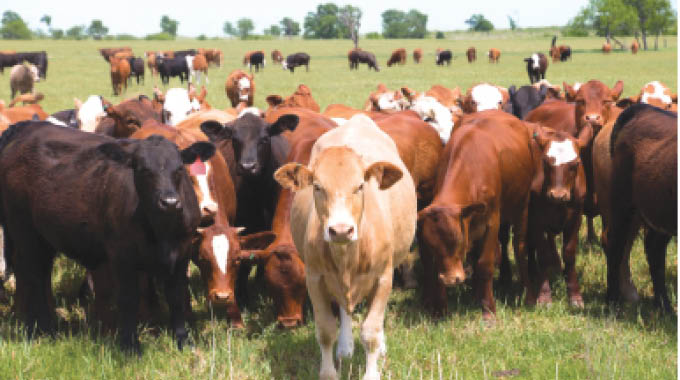
The Sunday News

WE are now well into the wet season, and we thank the Lord for the rains received in the past days. The rains have not been that heavy in most parts of Matabeleland region such that livestock farmers were beginning to worry about water for their animals as not much inflow had collected in most water bodies.
However, some places recorded significant inflows during the past few days. The wet season brings both joy and challenges for the livestock farmer as prevalence of diseases increases and hence a vigilant eye and hands on management becomes key.
Hands on management is our subject matter this week. Most of our smallholder livestock farmers are not entirely depended on their livestock enterprise but they are either employed elsewhere or are running some businesses fulltime elsewhere.
As a result, they have very limited contact with their animals. This is further compounded by the fact that some go into livestock production simply because it’s one of the investment options they came across, but they do not have the requisite passion that should accompany the decision to venture into livestock production.
Add the age factor into the fray, you will have a recipe for a failed enterprise. Most people mistakenly think that livestock production is something that they should venture into when they retire.
I have news for them, this is an industry for a person who is still have the energy and strength to do the hard labour and work long and/or odd hours. It is not a retirement home, far from it. The misconception that you can expend your youthful energy and years somewhere else and come to retire in livestock production, is thoroughly misplaced and the source of frustration for most livestock farmers who try to do it at the twilight ages.
One important aspect which we have discussed previously on this platform, is that as a livestock farmer you need to be able to have your boots on the ground and get your hands dirty as often as you can if you want things to go according to your expectation.
Admittedly we need to earn the money elsewhere to set ourselves up and to fund our other social and economic burdens, but if you want your beef production enterprise to work you need to be present on the ground as often as you can.
I would say if you spend weeks without going to see and work your animals, then your enterprise is on autopilot. It is working itself out without your input and it does not get worse than this.
As a livestock farmer you need to inspect the following about your area, have you received enough water in your water bodies to sustain your animals throughout the year? Do you have sufficient grazing to take you through the year?
What is the grass composition of your veld, are you moving towards more of unpalatable grasses than grasses? What is the predator situation like, will you not lose most of your calves to predation? What are the emerging disease trends in your herd? It is only a regular visit and inspection of the farming area which can help you answer these questions and institute correction or mitigation measures where necessary.
A regular and thorough inspection of your animals every time you visit the farm is very important as this helps to identify emerging problems and deal with them early. Also, it keeps your stockmen on their toes as they know they cannot lie or hide important issues about your animals.
Never go to your farm in a hurry and hope to rely on the word of your stockmen about the condition of your animals, you will receive a shocker one day when you thought you had 50 animals only to learn you are actually left with 30! Like the common saying goes “if you don’t inspect do expect”, livestock farmers need to know that nothing in management can substitute putting your boots on the ground and getting your hands dirty.
Also, the satisfaction of spending your day working your animals, is something no one can describe.
You feel a certain gratification after spending your morning dipping, dosing and inspecting your animals. Your attention to details as you inspect your animals and attend to what needs to be done, tends to rub off on your stockmen such that overtime they are actually able to carry out the task with the same level of meticulousness.
Conversely, your laziness around inspecting your animals rubs off on the guys as well and they get to learn that even if we don’t do it, it doesn’t matter and the result will most definitely be disastrous as problems which could be easily rectified if identified much earlier, will always degenerate into a bigger challenge.
A sick animal will not receive treatment timely, a dystocia case will not be assisted in time and in both cases, you will certainly lose your animals.
Uyabonga umntaka MaKhumalo.
Mhlupheki Dube is a livestock specialist and farmer. He writes in his own capacity. Feedback [email protected]
Cell 0772851275



